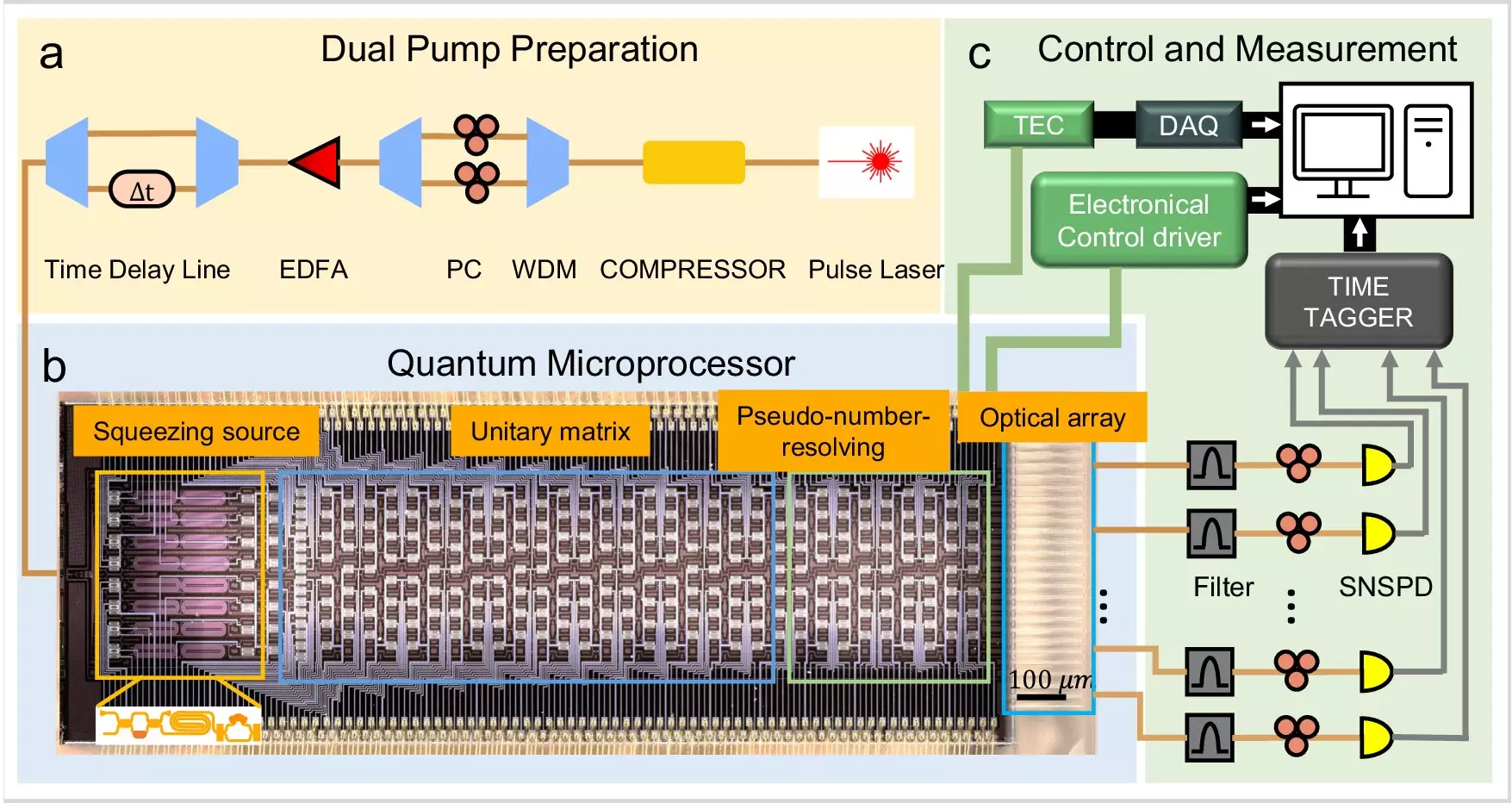Quantum simulation has emerged as a groundbreaking tool that allows scientists to delve into the depths of complex systems that were previously considered too difficult to study using traditional computing methods. This revolutionary approach has opened up new possibilities across various fields, ranging from financial modeling and cybersecurity to pharmaceutical discoveries and AI advancements.
One of the key areas where quantum simulation has shown immense promise is in the study of molecular vibronic spectra. Understanding the molecular properties and behaviors at this level is crucial for molecular design and analysis. However, traditional supercomputers have struggled to efficiently handle the computational demands of this problem, leaving researchers grappling with limitations in accuracy and noise.
In a groundbreaking achievement, a team of engineering researchers at The Hong Kong Polytechnic University (PolyU) have pioneered the development of a quantum microprocessor chip specifically designed for simulating molecular spectroscopy of large and complex molecules. This world-first accomplishment represents a significant step forward in capturing quantum effects accurately, which are vital for simulating molecular vibronic spectra.
The development of this cutting-edge technology has paved the way for tackling intricate quantum chemistry problems that were previously beyond the capabilities of classical computers. Led by Professor Liu Ai-Qun and Dr. Zhu Hui Hui, the research team has harnessed the power of quantum superposition and entanglement to create a large-scale photonic network with squeezed vacuum states for molecular vibronic spectroscopy.
The quantum microprocessor chip developed by the team promises a wide range of practical applications, including simulating large protein structures and optimizing molecular reactions with unprecedented speed and accuracy. This breakthrough technology holds the potential to revolutionize quantum chemistry applications and bring about quantum speed-ups in various scientific fields.
As quantum technologies continue to evolve, they are poised to transform scientific disciplines such as material science, chemistry, and condensed matter physics. The quantum microprocessor chips developed by the research team offer a promising avenue for quantum information processing, opening up new possibilities for solving complex problems and harnessing quantum machine learning techniques.
With their groundbreaking research on molecular spectroscope simulation using quantum computing microprocessors, the team at The Hong Kong Polytechnic University has made significant strides in advancing quantum technology and exploring the vast potential of quantum computing applications. As they continue to scale up their microprocessor and tackle more intricate applications, their work holds promise for benefiting society and industry in profound ways.


Leave a Reply